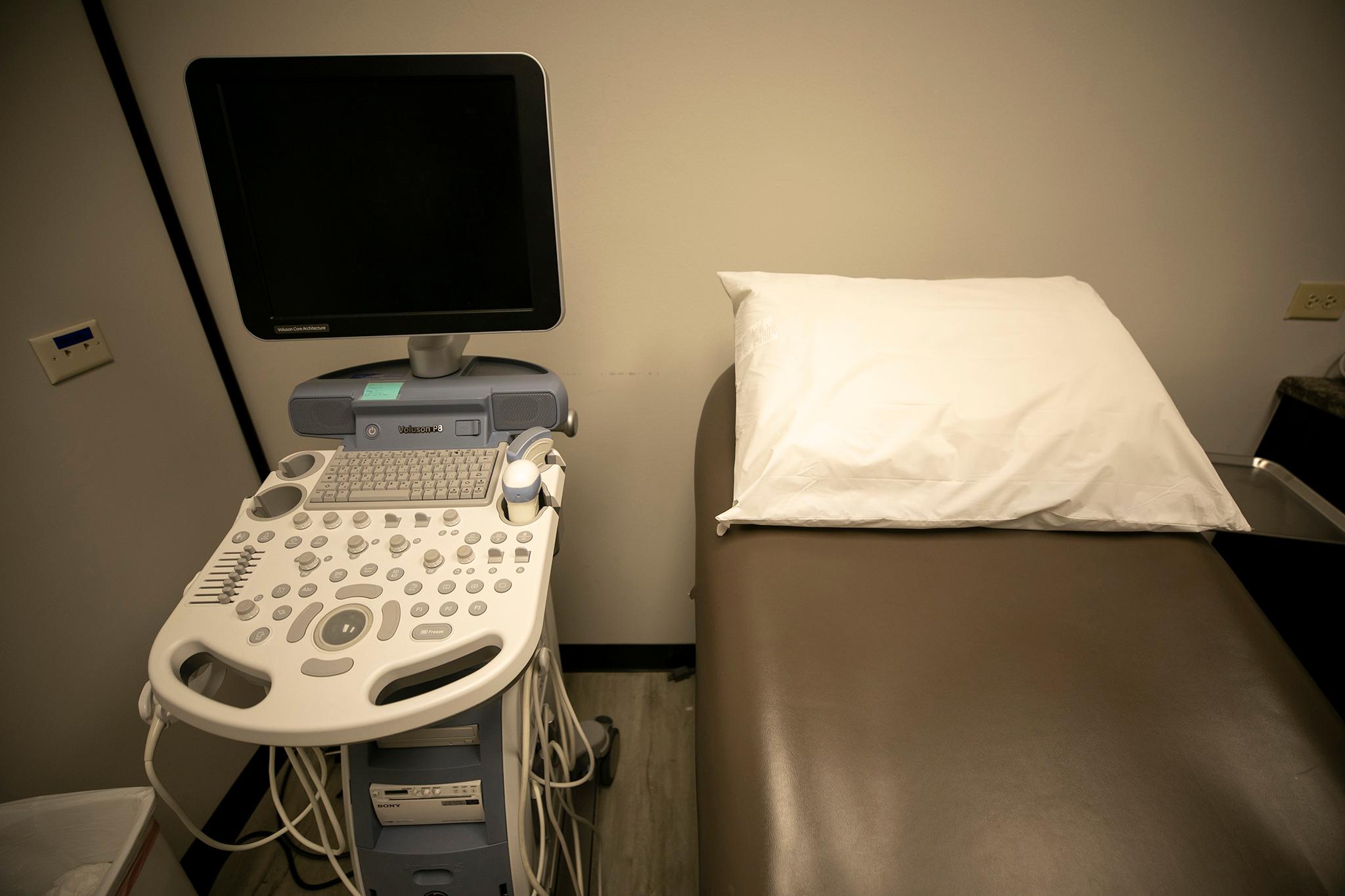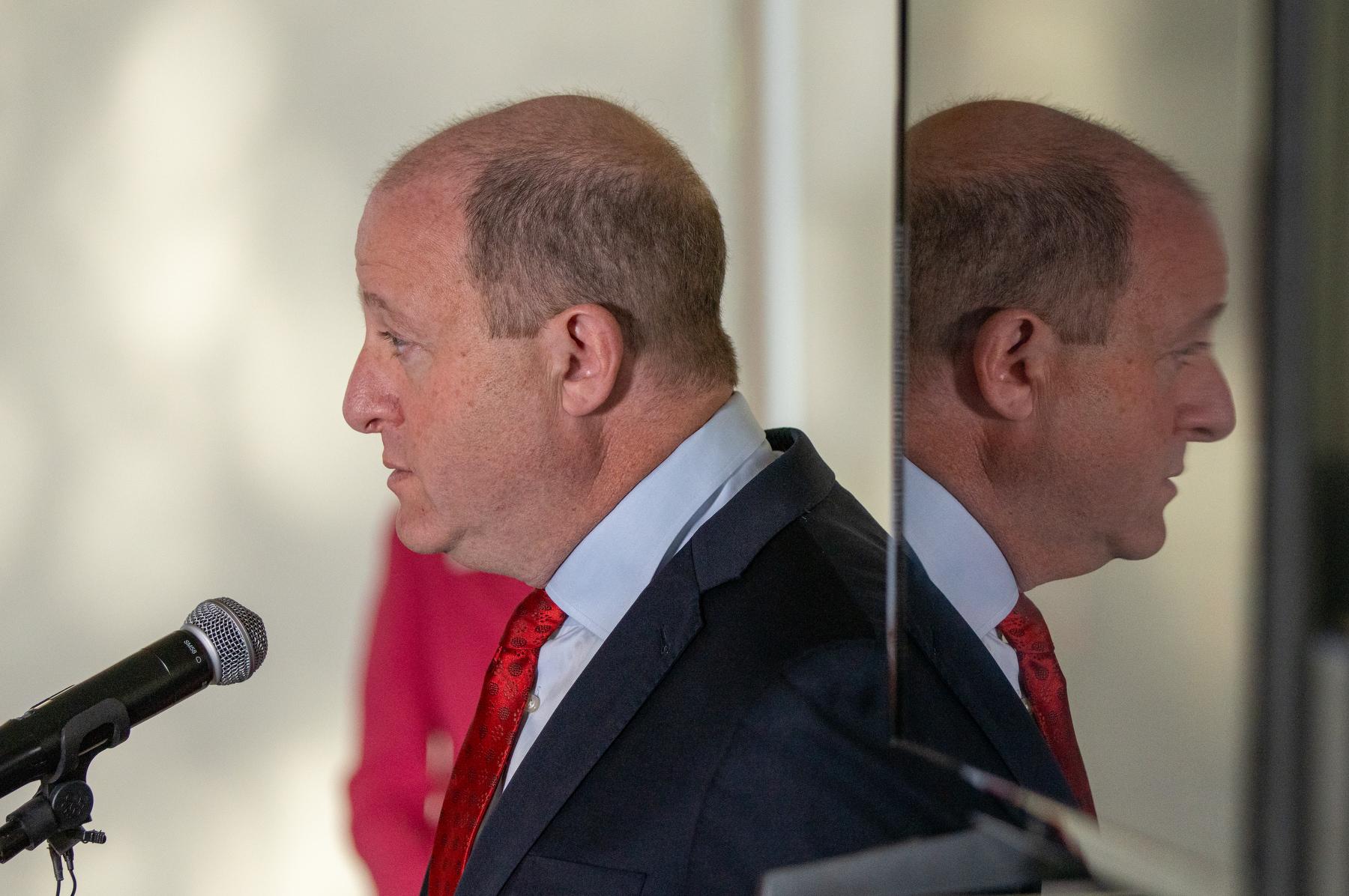
Senior health care leaders in Colorado said they aim to keep as many residents covered on Medicaid as possible as the state faces deep cuts to the health care program laid out in the federal tax and spending bill that passed last month.
The Colorado Department of Health Care Policy and Financing, which accounts for about a third of the state’s annual $44 billion budget, held a webinar Monday with stakeholders, including providers and enrollees. The agency manages Health First Colorado, the Medicaid program for low-income Coloradans.
“Our North Star goal is to mitigate the loss of coverage and its catastrophic consequences to Coloradans, providers and the economy,” said Kim Bimestefer executive director of Colorado Department of Healthcare Policy and Financing.
Just how many Coloradans could lose coverage is unclear, but numbers they reviewed indicate it’ll be in the hundreds of thousands.
”Our goal: Avoid draconian cuts to Medicaid,” Bimestefer said on the two-hour call with almost 2,400 people joining virtually.
Bimestefer’s team said they’re focused on making the most of available federal funds and finding savings wherever possible. One big challenge is a tight state budget, which faces a $1 billion shortfall. The governor has called a special session next week to deal with it.
Bimestefer gave a bit of a pep talk to providers and Medicaid members and others on the call who’ve been rocked by the looming changes.
“Let's step back and say, ‘We are Colorado.’ This is a difficult time. We are Coloradans and we are innovative. We pull ourselves up by our boost straps. We collaborate. We're smart,” she said. “We lead. So we pull together and we climb this mountain. That's what we do. We climb mountains here in Colorado.”
Her team also spotlighted one potential bright spot. The state has made a last-minute application aimed at easing the force of reductions in Medicaid spending. If approved by the administration, it could mean Colorado could see $378 million in new federal funding a year, according to the Colorado Sun. Those funds would help but would not approach replacing the amount of money the state is set to lose.
Colorado could also get a chunk of money from the bill’s Rural Health Transformation Program. That funding will provide $50 billion across the country, half of which will be split evenly between states with approved applications. Details are expected to be announced at the end of the year.
Here are five key numbers included in the webinar.
Funds for the coverage of 425,000 Coloradans will be cut from ratcheting down of hospital provider fee
The bill reduces what are called hospital provider fees and related federal funding. Starting in October 2027, this will significantly cut funds to cover Medicaid and the Children’s Health Insurance Program, known as CHP+.
“Colorado's provider fee, keep in mind, finances multiple populations,” said Bimestefer during the call.
Federal funding collected through the health care policy department, through the Colorado Healthcare Affordability and Sustainability Enterprise will decrease, Bimestefer wrote on the agency’s website.
That money pays to care for more than 425,000 Coloradans covered under the Medicaid expansion, buy-in programs for people with disabilities and CHP+ and pregnant women, she said.
Those funds also significantly increase reimbursements to Colorado’s hospitals.
Beginning in fall 2027, the total in federal funds states can draw down drops each year by 0.5 percent. That will result in an estimated loss of more than $115 million in provider fees that can be collected from hospitals and a decline of about $180 million to $525 million in federal matching funds for hospital reimbursement or expansion coverage, depending on policy decisions made by state leaders, Bimestefer wrote.
More than 377,000 Coloradans will have to abide by new Medicaid rules, including work requirements
The new law requires enrollees who are “able bodied” to prove they are working.
This is expected to dramatically hit what’s called the Medicaid expansion population, those who gained coverage when Medicaid expanded after the Affordable Care Act, also known as Obamacare, launched more than a decade ago.
Within a year, “we'll understand better what able bodied means.” said Bimestefer, noting state program administrators are waiting for information from the Trump administration.
“The individuals have to either work, be in a work training program, go to school, or volunteer at least 80 hours a month,” she said. “That is a big deal. So that threat is a threat to people being able to get through the system to stay eligible.”
The state’s program, under the new law, will need to determine a person’s eligibility for Medicaid twice a year, which is expected to be a major administrative undertaking.
Bimestefer said the agency will work to avoid Coloradans losing coverage, which will have a major impact on providers, who are paid by the government to care for those people, and for the economy.
“So getting through eligibility twice a year instead of once is a barrier. We want to make sure people don't fall off the rosters because they couldn't get through the process,” she said. “We want to make sure people know what they need to do in order to go through those work requirements and satisfy them.”
100,000 people who buy insurance through the state’s health care marketplace are estimated to lose coverage
Many Coloradans who buy insurance through the state’s health insurance marketplace are expected to lose it as what are called federal enhanced premium tax credits expire.
Congress has so far not renewed those credits, which help tens of thousands of Coloradans afford to pay for it.
Roughly 112,000 people – 43 percent of those now enrolled via Connect for Health Colorado – could lose health insurance coverage, according to the marketplace.
“About 86 percent of Coloradans on the marketplace exchange get some sort of subsidy,” said Bimestefer.
14,000 Planned Parenthood patients covered by Medicaid could lose coverage
As of July 4, the new law blocked patients in Colorado from using Medicaid health care plans at Planned Parenthood clinics.
Congressional Republicans passed a provision in the budget reconciliation bill, which was signed by President Trump, that effectively defunds the clinics. The law didn't specifically name Planned Parenthood. However, it barred Medicaid payments to large health care nonprofits that offer abortions.
This part of the law is currently being fought out in the courts, after the national organization, which has clinics in Colorado run by Planned Parenthood of the Rocky Mountains, sued the Trump administration.
“About 14,000 individuals use their clinics at some point during the year. We're working with our health plans to connect those folks to needed services,” said Rachel Reiter, HCPF’s Policy, Communications and Administration Office Director. “This provision is under current litigation, which we are watching very closely.”
7,000 legal immigrants expected to lose health coverage
The new law prohibits Medicaid health coverage for certain legal immigrants “under the federal definition of what's called a ‘qualified alien,’ like asylum seekers, refugees, victims of trafficking or domestic violence,” said Reiter. “We expect about 7,000 to lose coverage because of this provision.”
This change will take effect in October 2026.
It’s unclear how many people fall into more than one category of groups affected by the cuts.









